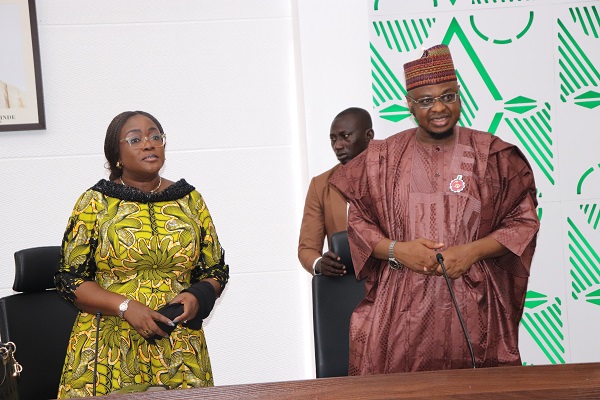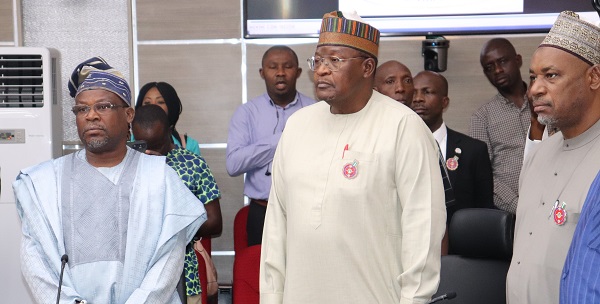
The Federal Government has been commended by stakeholders in the telecommunications sector for its commitment to providing leadership and guidance for industry growth.
The commendation, by a cross-section of participants at the ongoing 10th edition of the National Council on Communications and Digital Economy, held at the University of Ibadan, Oyo State, followed the listing of about 20 policies by the Minister of Communications and Digital Economy, Prof. Isa Pantami, aimed at promoting different areas of the digital economy, including the flagship National Digital Economy Policy and Strategy (NDEPS) 2020 – 2030 and the Nigerian National Broadband Plan (NNBP) 2020-2025 – all of which have started to yield concrete, positive results for the economy.
Pantami said the recent assessments by the Foreign Development and Commonwealth Office (FDCO) and the KPMG Consulting, which adjudged the communications and digital economy sector as the best-performing sector in Nigeria, were based on eight key priority areas, one of which was revenue generation, where the sector has raised government revenue profile by 594 per cent.
The Secretary to the Oyo State Government, Olubamiwo Adeosun who represented Governor Oluseyi Makinde and the executive vice chairman of the Nigerian Communications Commission (NCC), Prof. Umar Danbatta were some of those who applauded the Federal Government’s vision for the sector.
Emphasising the centrality of digital innovation and digital entrepreneurship to a robust digital economy, the minister commended the participants for the quality of evaluation, recommendations and criticisms that attended the memoranda presented at the council.
He urged the media to give the best coverage to the communique to be issued after the meeting and enjoined professionals in the media systems of communication to note specific recommendations and the corresponding role of each stakeholder in the implementation of each item in the communique.
The minister announced that 110 memoranda and recommendations were presented to the council. Of these, 67 were approved for council implementation while the remaining 43 recommendations will be reconsidered in the next meeting of the council.
Pantami thanked the Makinde and the Olubadan of Ibadan, His Imperial Majesty, Dr. Lekan Ishola Balogun, Alliwo Okumade II, for receiving him and his team on a courtesy visit he paid earlier to the palace and to the governor’s office where Adeosun had earlier received the minister on behalf of the governor.

In his goodwill message, Danbatta praised the minister for his impeccable supervisory role as the leader of the sector.
Also, Danbatta applauded the Federal Government for being the most revolutionary administration in terms of commitment to the utilisation of digital resources for the growth of individuals, businesses and the national economy through the design of policies to achieve concrete, measurable and remarkable deployment of cutting-edge technological applications.
On behalf of the board and management of NCC, Danbatta thanked participants for their attendance and active participation which, he said, attested to the importance attached to the promotion of the digital economy and culture.
Amplifying the voice of the minister, the EVC stated that the participant’s commitment to the government’s digital economy agenda has been well demonstrated in the methodical review of the recommendations of the 9th council meeting, objective identification of achievements and the frank approach to chart the path towards future goals and expectations.
“The NCC remains committed to supporting all policies, strategies, plans and initiatives that promote the provision of modern, universal, efficient, reliable, affordable, and easily accessible communications services and give the widest range throughout Nigeria,” Danbatta promised.
A statement by the commission’s director, public affairs, Reuben Muoka said
Danbatta also emphasised that, as a demonstration of its commitment, the commission undertook a timely release of spectrum in the 3.5GHz band for the deployment of 5G services to ensure that Nigerian citizens, businesses, public institutions and other stakeholders are enabled with the requisite infrastructure to engage in the emergent digital economy and culture.


